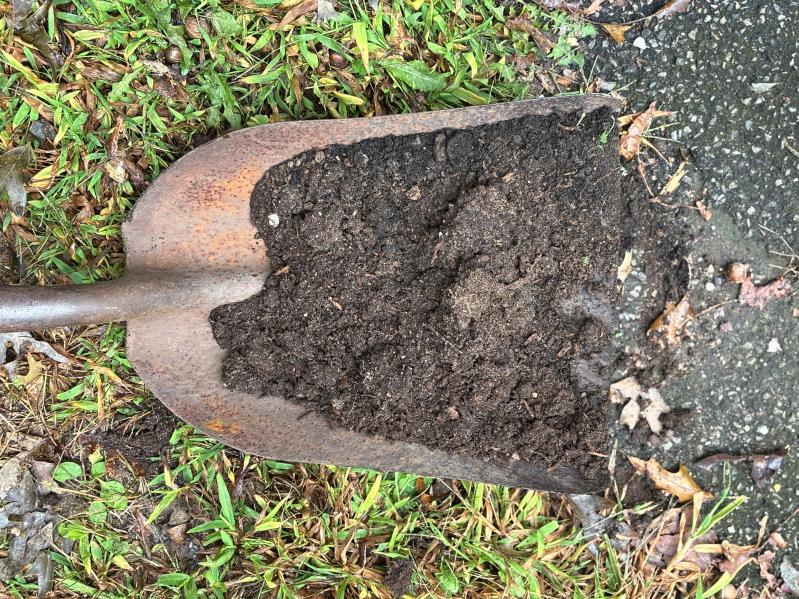Maybe you like to see snow outlining your drying hydrangea blossoms, or you like to leave the leaves for small birds to forage in. But the truth is — now or later — the yard needs attention.
If you do it now, you’ll need to revisit cleaning it in the spring. If you wait until the spring to clean up your yard, you’ll only need to clean it up once, but you might lose a little grass if it was covered by fallen leaves all winter. In my book, it’s smart to clear the debris to reduce the tick population and to allow some perennial flower plants to grow unhindered. And when it comes to the vegetable garden, well, pests love to overwinter in dead foliage and on wooden stakes. These are the very pests that eat the vegetable plants. They are lying in wait.
Leave Them Be
Chard, kale, and collard greens can keep producing through the cold and snow, so leave them be. Much like perennial herbs, your onions will come back green in the spring.
Muck In
This is a great time of year to add a layer of compost or mulch to your garden. An inch spread is more than enough to add nutrients to the soil and to hold moisture in place. Place it around growing plants like kale and collards. This is the rare time you can use compost that isn’t fully mature — on empty garden beds. It will break down over the winter.
What to Do Now
Rake debris away, and pull the dead weeds you can still see, being careful not to further spread their seeds. Remove stakes and tying materials, cut and remove dead vegetable plants, and loosen compacted soil with a spade.
Compost It
Most fruit and vegetable plants can be safely composted. Tomato plants, because they carry the threat of blight, can only be composted if your composting set-up goes through a two-year cycle and is well removed from where you will be growing tomatoes. Even plants that show no visible signs of blight may be carriers. And blight spores can survive for over a year.
In other words, if you have dedicated compost bins and you know that you would only draw from a given bin after it had rested for two years, you can safely compost tomato plants. Otherwise, discard them.
Layer in leaves and/or wood chips from your yard.
Don’t Compost It
Discard wooden stakes from the garden, as they harbor pests and take a very long time to compost. Discard any tying materials that contain plastics. Discard weeds bearing seeds.
Wash Up Before Storage
Metal tomato cages may be cleaned with a light bleach solution, along with garden ornaments and garden tool handles.
Clean and sharpen the business end of tools now for spring success. Local hardware stores do a great job of sharpening tools, and there’s little wait time now that our summer residents have departed for warmer climes.
Seed Catalogs!
Plan out what to plant where, and order seeds early for the best selection. Adding raised beds? Set them up and fill them now for early spring use. You won’t want to plant plants in the same family in the same area two years in a row. The five basic plant families are: pea family (includes beans), mustard family (cabbage, broccoli, kales), nightshade family (tomatoes, potatoes, eggplant), aster family (lettuce, chicory, artichoke, dandelion), and the gourd family (squash, cucumbers).
Bring the Outdoors In
You probably have some overgrown evergreens on your property, or nearby. A bunch of evergreen branches packed into a bucket of water makes for a fresh-scented centerpiece. It can even stand in for a Christmas tree. Maybe decorate the branches with dried hydrangea, pine cones, and seashells.
Add some fresh water to the bucket every day and your greens will keep thriving past Christmas. When you’re done with your “winter bouquet,” chop it up and throw it on the compost heap. Spring is coming.




